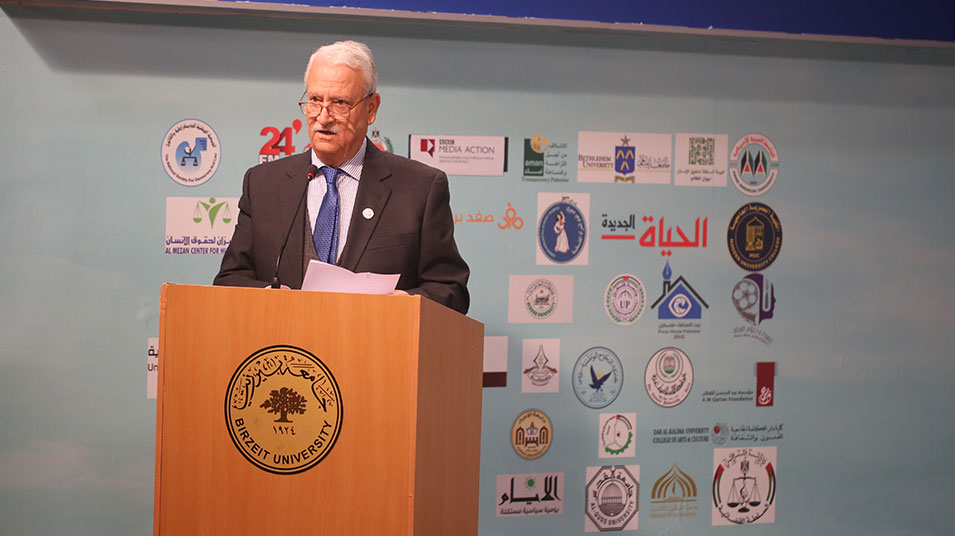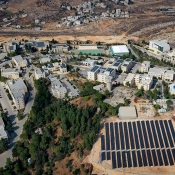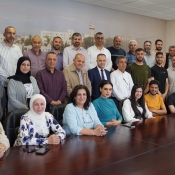“Forsa”: a new initiative to support independent, transparent media
Chance - Forsa”, a new campaign that aims to affect policy makers to adopt new decisions for a more transparent, free, and open Palestinian media, was launched on November 25 by the by the Media Development Center at Birzeit University. The launch was held in both the West Bank and Gaza.
The new campaign is the outcome of three years of work with the National Initiative Media Development committees, comprised of 80 civil, academic, legal, and gender institutions working in the field of media development.
The main goal of “Forsa” is to call upon policy makers to ratify a number of suggested laws that will regulate the media and information sector, including: the Media Council Law; the Right to Information Act; the Journalists Syndicate Law; the Audiovisual Law; and the Amended Press and Publications Law. In addition, the Campaign suggests establishing a media council and an information commission, and completing the transition from governmental media to a public media, based on presidential decrees issued in this regard.
Birzeit University President Abdullatif Abuhijleh valued, in his welcoming speech, the initiative, describing it as the “the newest, most transparent initiative,” because it is based on international standards. “This initiative tackles every aspect in the media sector, and aims to contribute in strengthening the sector’s weaknesses through education and training and bolstering the relevant legal and professional regulations, in addition to creating policies related to social media networks.”
Abuhijleh also announced that, as an outcome of this initiative, Birzeit University has approved three new media courses..
The General Coordinator of the Department of Culture and Information in the Palestine Liberation Organization - PLO, Haidar Awadallah, talked about the PLO’s mission to establish a media sector that is freer and more accessible and that represents every Palestinian. He assured launch attendees that the PLO will support every initiative that aims to create a more sophisticated media and information sector.
The General Director of the Independent Commission for Human Rights, Ammar Dwaik, expressed his enthusiasm about the Media Development Center’s new initiative, which is inclusive and open to the role of the different institutions that work in media and law.
Dwaik alluded to the Cybercrimes Law, which he considered the worst law promulgated by the Palestinian political system, because it violates Palestinians’ freedom. “Palestinian journalists need a new law and regulations that enable them to overcome the obstacles they face because of the Israeli Occupation.”
The Director of the Media Development Center at Birzeit University, Nibal Thawabteh, said, “We succeeded in developing a new initiative that represent our people, and today, we gather to celebrate our work with all our partners.”
The Head of the Palestinian Journalists’ Syndicate, Nasser Abu Baker, said that the Palestinian media has always been a long-standing supporter of the Palestinian national liberation process. Many freedom fighters, according to Abu Baker, worked as journalists.
“We will work together to advance the Palestinian media, boost freedoms, and improve performance based on international standards for media freedom,” he added.
Forsa which is the outcome of the National Media Development Initiative, is supported by the Swedish International Development Cooperation Agency (SIDA) and comprised of nine main pillars: legal reform; academic development; gender; infrastructure development i; media training; occupational safety; media sector self-determination; media and society relationships; and public media.
For more information about Forsa, please visit www.forsa.birzeit.edu .







